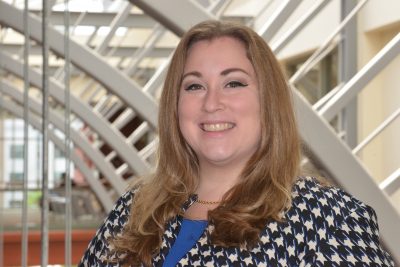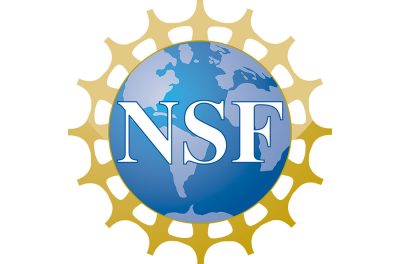
Rebecca Campbell-Montalvo, postdoctoral research associate in the Department of Curriculum and Instruction, is co-principal investigator on a new $500,000 federal research grant funded by the National Science Foundation.
Headed by principal investigator Jana Marcette, director of the Office of Graduate Studies at Montana State University Billings, the five-year interdisciplinary project brings together Campbell-Montalvo, an expert in the anthropology of education, with co-principal investigators in biological sciences and psychology from Saint Louis University and the University of California at Davis. Titled “Inclusive Environments and Metrics in Biology Education and Research (iEMBER): Novel Networking Fostering Interdisciplinary Communities and New Research Collaborations,” the project ultimately seeks to improve the inclusion and retention of students in the STEM fields of science, technology, engineering, and mathematics.
“Over the past decade, there has been an undeniable turn toward STEM education,” says Campbell-Montalvo. “For instance, the Girl Scouts introduced STEM merit badges a few years ago — something that was groundbreaking at the time.”
“Researchers are understanding that underrepresentation in STEM needs to be addressed through factors outside of students’ own efforts.”
— Rebecca Campbell-Montalvo, co-principal investigator
However, she adds, “more and more stakeholders are realizing that the underrepresentation of minoritized groups — African Americans, Latinos, American Indians, women, people who are LGBTQPIA+, and other groups — in STEM is a serious problem that impedes technological advancement, biomedical discoveries, diverse perspectives, and social justice.”
‘A new generation of researchers’
Numerous factors can create barriers to boosting diversity and retention of students in STEM — among them, the researchers attest, are academic, cultural, economic, and other forces, and addressing these issues requires expertise from such diverse fields as biology, education, and the social sciences.
At the same time, “researchers are understanding that underrepresentation in STEM needs to be addressed through factors outside of students’ own efforts,” says Campbell-Montalvo. “This means that we are paying more attention to inclusion and climate … [and] thinking about how treatment from peers and instructors as well as representation in textbooks affects individuals’ feelings that they belong in STEM.”
The team’s primary focus over the course of five-year project will be on broadening inclusion in the area of biology education research by:
- bringing researchers together for workshops and conferences in areas outside of their expertise;
- creating an online space to support research collaborations across different disciplines; and
- developing a cache of practical resources on inclusion and diversity in STEM.
In cultivating these online and in-person interdisciplinary collaborative efforts, the team says it hopes to bring about to a “new generation of researchers that has the broad expertise needed to continue to tackle problems in STEM education.”
“Our assumption is that if we can broaden participation in biology education research, we can expand the perspectives of those doing the research and introduce effective strategies to improve inclusion — and thus, retention and attainment — in biology” among students of all ages, says Campbell-Montalvo.
Co-funded by the Improving Undergraduate STEM Education (IUSE: EHR) program, the project is slated to receive funding through midsummer of 2024.
Check out the iEMBER Research Coordination Network on the Harris-Stowe State University’s website to learn more or if you are interested in joining a group that is researching inclusion in biology education. Follow iEMBER at @iEMBER_Network on Twitter.
 Facebook
Facebook
 Twitter
Twitter
 LinkedIn
LinkedIn
